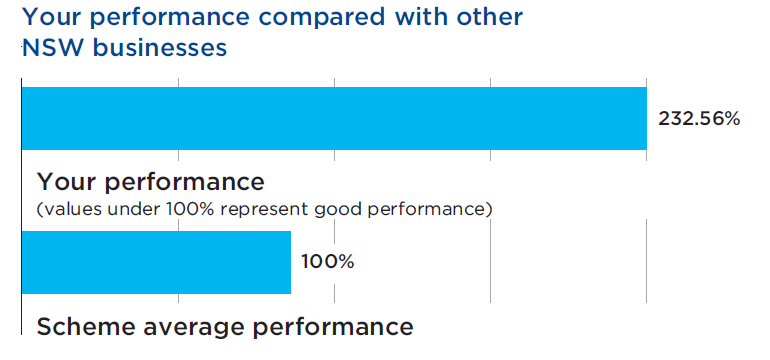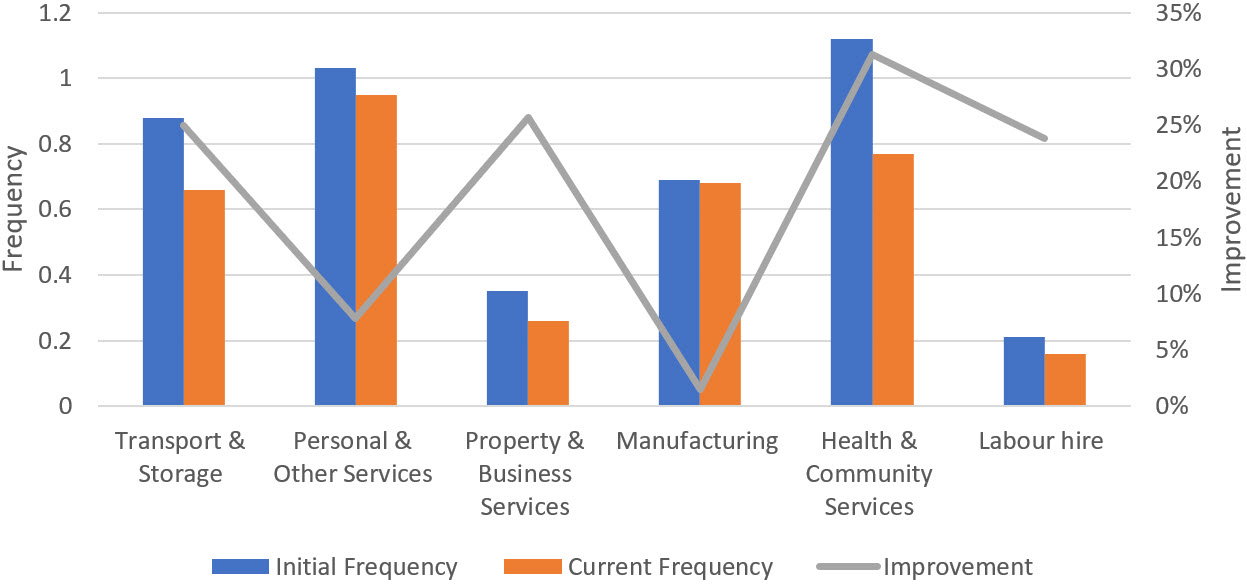The importance of injury prevention
This week our deep dive focuses on the importance of injury prevention and the role all NSW businesses can play in keeping their people safe and their premiums lower.
Put simply, NSW businesses who experience lots of injuries each year generally pay higher premiums. As a result, the best way a business can help to keep their premiums affordable and stable is to help prevent injuries in the first place. In this article we look at how icare is helping businesses with injury prevention and how this is making a difference to reducing injuries in NSW.
What is injury prevention and why is it important?
Injury prevention is about taking a risk management approach to your operations so that you prevent as many injuries as possible.
When we think of injury prevention, we often think of work health and safety policies and processes. While these are important, just having a policy or process in place is not enough to reduce injuries. What's important is how people understand the policy or processes, whether they are followed, and, whether they effectively reduce risk. Building an organisational culture that supports safety is critical to reduce injury and illness in the workplace.
Preventing injuries is important for a number of reasons, including:
- ethical/moral: injuries can have a significant negative effect on a person's life and livelihood
- legal: NSW businesses have an obligation to provide a safe work environment under the Work Health and Safety Act 2011
- operational: injuries impact on productivity and costs, such as higher workers insurance premiums.
Many factors in an organisation's operations, such as productivity and quality, can influence workplace safety and how it is perceived. It's important for NSW businesses to remain focused on understanding and fixing problem areas unique to their organisation's risk profile. Ensuring that safety is front of mind across all their employees is equally important.
How does improving safety lower premiums?
icare's goal is to work with NSW businesses to help them keep their premiums as stable and affordable as possible. Apart from ensuring NSW workers go home safely every day, good safety also makes good business sense.
As we've talked about in our previous articles about the workers insurance scheme, businesses with an average performance premium of above $30,000 will have their premiums experience-rated, meaning their premiums will be impacted by their claims performance. Businesses can see how their safety performance measures up against other businesses via their renewal information pack:

In the same way, those employers who have a good record of managing worker safety and recovery are likely to have fewer claims, and ultimately, lower premiums.
How is icare assisting NSW businesses with injury prevention?
When it comes to injury prevention, icare's focus is on empowering NSW businesses to take a proactive approach toward improving workplace risks.icare identifies those businesses paying significantly higher premiums than the average for their industry and provides them with a range of specialist injury prevention support to help them reduce injuries and develop a sustainable safety culture. This support is delivered via a program called Protect Together (P2).
As the name suggests, the focus of P2 is on partnering with businesses from all industries to provide them with a structured approach to safety, rather than 'doing safety for them.'
The program helps businesses understand problem areas, identify opportunities for improvement and deliver an action plan suitable to their individual workplace. Throughout the journey, participants have access to a Culture Survey, the expertise of an injury prevention specialist and ongoing mentoring by icare over a 12 to 18-month period.
What has been the take-up of P2 among NSW businesses so far?
The program was introduced in 2018 and has been in operation for nearly two years.
So far, 76 NSW businesses with a total of 40,000 workers have signed up for the program, with new employers enquiring about the program regularly. The program is open to all industries and is currently supporting businesses across a range of sectors from manufacturing to education and aged care.
How is P2 helping NSW businesses reduce injuries?
A growing number of our P2 participants have now implemented their action plans and are seeing positive results. Early evidence suggests that these businesses are experiencing a reduction in the frequency of injury claims. The following graph shows the change in average claim frequency of these P2 participants, grouped by their industry.

In addition, these businesses have made important changes in their workplaces towards improving safety such as creating new safety-focused leadership roles or expanding their work health and safety teams. We've also learnt from participants that the program has enabled them to challenge the status quo and create a real seat at the table for safety.
What other support is available?
Apart from the P2 program, icare offers training and education for NSW businesses on topics such as mental health first aid, respect and resilience, culture and leadership.
icare’s Injury Prevention & Risk Advisory team has also been working directly with businesses impacted by COVID-19, providing a range of employer checklists and fact sheets which take businesses through what they should be thinking about when it comes to inducting new staff and managing risk in these changed ways of working.
Next we'll look at the impacts of COVID-19 on the Nominal Insurer so far and the support we're providing NSW businesses. In the meantime, click here to learn more about preventing injuries and managing risks.

